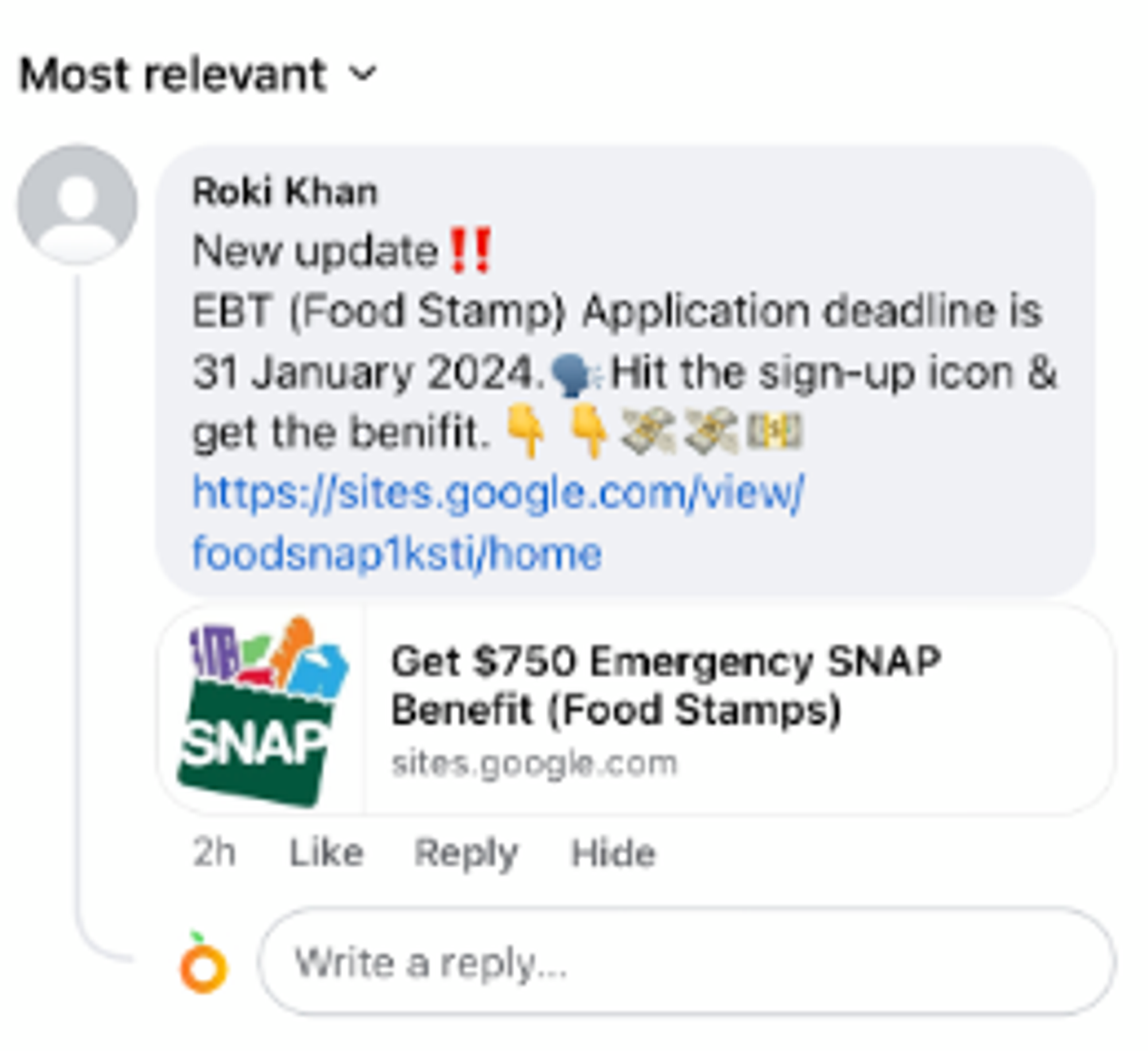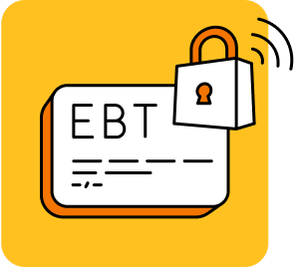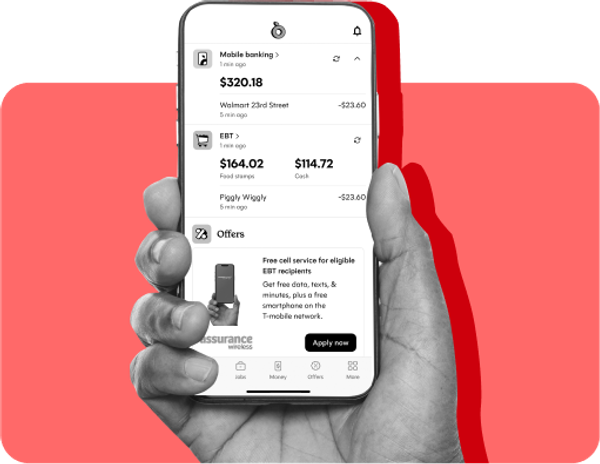EBT text scams: what to look out for
In the digital age, scammers are becoming increasingly sophisticated, targeting vulnerable individuals through electronic benefit transfer (EBT) scams. These fraudulent schemes promise fake EBT offers to steal not just vital benefits but also personal information. Here's how to spot these scams and protect yourself from benefits theft.
@thepropelapp If you see a social media comment like this, DO NOT click the link! 🚨 It’s likely a scam trying to steal your information and EBT benefits. In addition to social media scams, scammers are also sending texts falsely claiming that your EBT card has been locked or that you’ve won a prize. 👉 Remember: You will never receive texts about EBT card issues from your state or the Providers app. If you suspect EBT fraud, contact your caseworker or local SNAP office right away. #providersapp #providers #ebt #snap #ebtbenefits #ebtiktok #ebtcard #moneytips #foodstamps #ebttheft #ebtfraud #scammeralert
♬ Anxious, dark, serious atmosphere piano solo(1484444) - Vlog Music Crafts
Recognizing the signs of EBT scams#recognizing-the-signs-of-ebt-scams
Scammers often use EBT scams on social media, emails, and texts. These scams offer deals that appear too good to be true.
People are tempted by these offers. They might impersonate official agencies, promising additional benefits or assistance in exchange for personal information or EBT card details. Always remember, legitimate agencies will never ask for sensitive information through these mediums.
#

The lure of fake offers#the-lure-of-fake-offers
Scammers utilize various tactics to capture your attention and trust. Scammers design fake offers to trick you into acting quickly and sharing personal or financial information. These offers may promise extra EBT credits or services that do not actually exist.
Be cautious and skeptical of any offers that seem too good to be true. Do not provide any personal or financial information unless you are certain of the legitimacy of the offer.
#
Safeguarding your information#safeguarding-your-information
To protect yourself from falling victim to these scams, it's crucial to:
- Make sure to verify the source. Contact your EBT provider or local SNAP office. Use official channels. Report any strange offers or requests.
- Protect your personal information. Do not share your EBT card number, PIN, or personal details with anyone you do not trust. Avoid giving out this information through unverified messages.
- Stay informed by learning about common scam tactics and checking official websites or trusted sources for updates regularly.
What to do if you suspect EBT fraud#what-to-do-if-you-suspect-ebt-fraud
If you encounter or fall victim to an EBT scam, it's essential to report it immediately. Contact your local SNAP office, the Federal Trade Commission (FTC), or your state's EBT customer service. Reporting these scams can help prevent others from becoming victims.
Conclusion#conclusion
As EBT fraud continue to evolve, staying informed and vigilant is your best defense. Remember, your benefits and personal information are invaluable. By knowing scam signs, protecting your info, and reporting suspicious activities, we can stop scammers from succeeding.
Let's stand together against EBT scams, ensuring our benefits remain in the right hands. For more information and resources, visit [Our Brand's Website].








